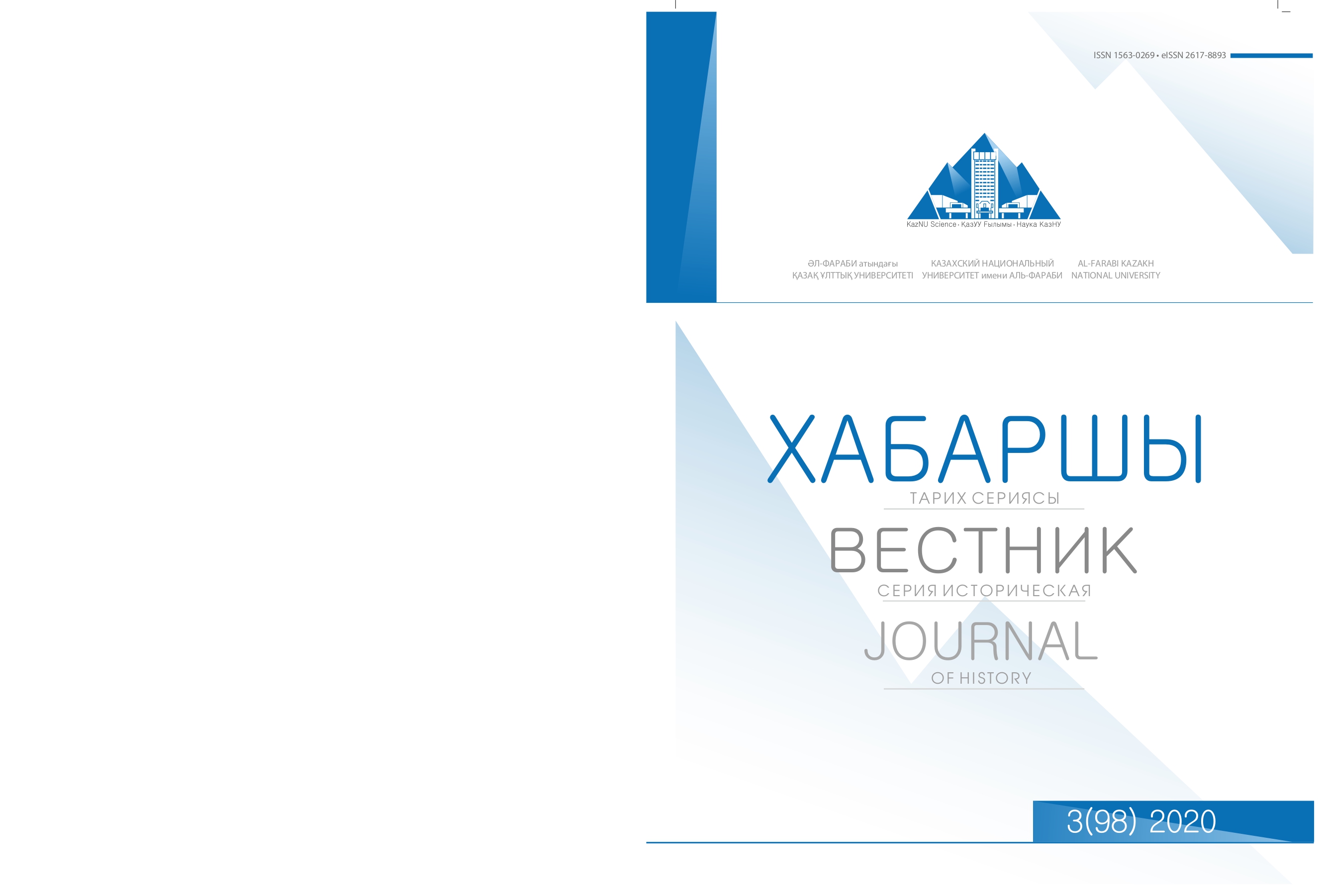Colonial Turkestan: contemporary foreign historiography on resettlement politics
DOI:
https://doi.org/10.26577/JH.2020.v98.i3.09Abstract
Success of the Russian presence in Turkestan was determined by character of colonialism and imperialism
which was transferred to the soil of Turkestan in 1870-1900s. This is a key question to understand
a nature and goals of the national liberation movements that emerged within this period on the territory
of empire. Political trajectories of the Russian empire development depended, to a certain degree, on
the results of Turkestan colonization. Would the empire be able to complete successfully “civilizing colonialism”
mission and within what range it was possible to realize? The answers to these questions were
due to the administration and Russian capital achievements in Turkestan – the only empire’s colony.
In this article the author ties to analyze an array of problems raised in the works of British historian A.
Morrison. He is actively involved into studies of Russian colonial society’s problems in pre-revolutionary
Turkestan. Morrison dwells on the nature of metropole – colony relations to focus on the results of fundamental
changes in Turkestan governor general and its differences form the other Moslem populated
imperial areas.












